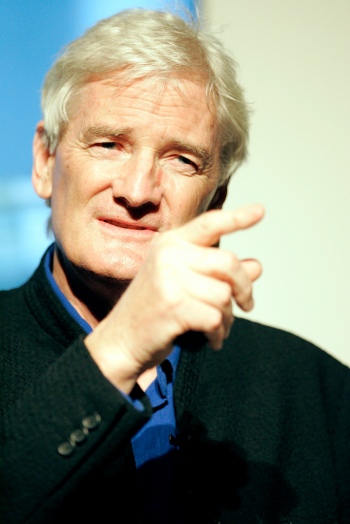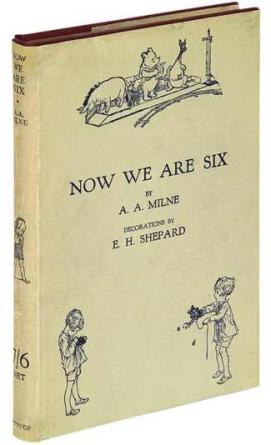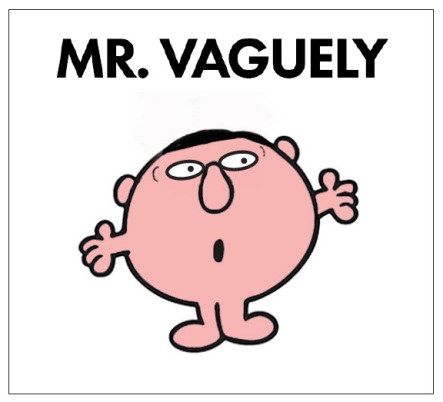
In which Mr Vaguely writes a colourful report on the Arts,
which everyone completely ignores.
With the focus on the unwelcome forced academisation of schools it’s important not to forget that there is still the problem of the impact of the EBacc on the Arts and many other subjects.
Ed Vaisey, government secretary in a state about Culture, Media & Sport recently launched a multi-coloured white paper that painted a glorious pictorial vision of arts ‘at the heart of everyday life’ and that ensured that everyone would be able to access culture ‘no matter what their background’.
Apparently, according to the White Paper:
“All state-funded schools must provide a broad and balanced curriculum that promotes the spiritual, moral, cultural, mental and physical development of pupils. Experiencing and understanding culture is integral to education. Knowledge of great works of art, great music, great literature and great plays, and of their creators, is an important part of every child’s education. So too is being taught to play a musical instrument, to draw, paint and make things, to dance and to act. These can all lead to lifelong passions and can open doors to careers in the cultural and creative sectors and elsewhere. Without this knowledge and these skills, many children from disadvantaged backgrounds are excluded from meaningful engagement with their culture and heritage. The national curriculum sets the expectation that pupils will study art and design, music, drama, dance and design and technology. New, gold-standard GCSEs and A levels have been introduced in these subjects.”
Well that’s all fine and dandy then, isn’t it? What’s all the fuss about? Everything is wonderful! Except that we all know that in reality it just doesn’t work like this, and that in order to increase a school’s league table position an increasing number of children are being persuaded to take EBacc subjects instead of those in the Arts. And at the same time provision at KS2 and 3 is being cut back drastically. It doesn’t sound like he read the NSEAD’s recent survey does it?
One has to feel a bit sorry for Ed Vaguely, the longest serving Minister for Culture, Media & Sport. He’s obviously passionate about the provision and promotion of the Arts, but somehow the Df-ingE keeps getting in his way. And of course he’s under contract to keep repeating the same old tired nonsense that the Df-ingE keep spinning in the belief that if they keep saying it loud enough and long enough it will actually become true, or at least people might start to believe it. Actually one doesn’t have to feel sorry for Ed Vaguely – he should be willing to stand up for himself and the Arts and challenge the bullies at the Df-ingE, which isn’t exactly difficult to do given their current record of ‘U’ Turns. After all it’s a White Paper, not a White Flag.
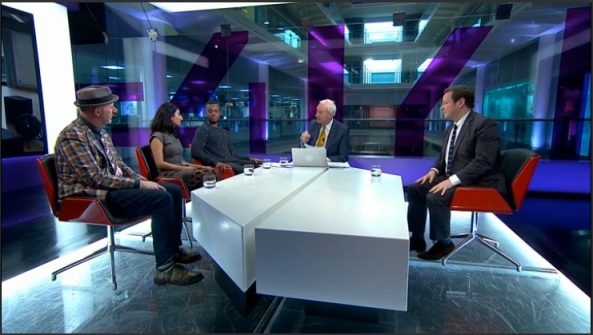
Anyway, the other night there was Mr Vaguely on Channel 4 News, telling the artist known as Bob & Roberta Smith (AKA Patrick Brill), film producer Uzma Hasan, George the Poet and Jon Snow how wonderful everything would be now that he had published his sparkling new Colouring-in White Paper. Of course such a debate needs a lot more more than 10 minutes and 30 seconds, but here are a few things that were and weren’t said about the future of Art & Design education…
While Uzma Hasan asked about funding and George the Poet talked about the importance of community arts, Bob and Roberta Smith entered the conversation (at around the 3 minute mark) briefly mentioning the impact of academisation before moving swiftly on to the fact that, under the extremely complicated EBacc and Progress 8 accountability measure, Arts subjects are all in what are known as Bucket 3. This gives them significantly less weighting in the final accountability calculation, thus encouraging schools to enter students for the academic subjects with the double and triple word scores of Buckets 1 and 2. All subjects are created equal, except it seems that some are considerably more equal than those involving the Arts.
Ed Vaguely countered with the usual mis-information about the genourous committement of the Government making a little bit of extra pocket money available for Music and Arts in schools, until Bob and Roberta point out that this was just for optional after-school and Saturday clubs. Given that understandably most children can’t wait to get out of school at the end of the afternoon, it’s only going to be a precious few who benefit from this provision.
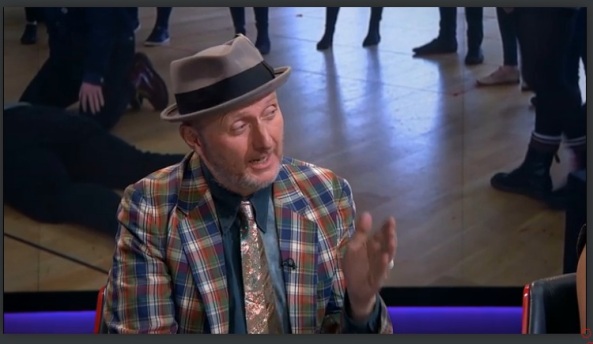
Vaguely then switched the conversation to the Government’s statement about the need for more students to take Science and Technology subjects (All Change Please! continues to wonder what these mysterious ‘Technology’ subjects actually are, and why they don’t include Design & Technology or Information & Communication Technology?), and pretended that doing more of these subjects didn’t mean doing less Arts subjects, despite the fact that for most students it does. He then made the interesting statement that: ‘Everything I talk about is the link between Science and the Arts, because you can’t have successful Science and Technology without Creativity.’ Indeed, that’s very true, and it’s just a pity Messers Morgan and Glibb had their fingers firmly stuck in their ears while he was saying it. Perhaps you need to shout more loudly Ed? And to keep on reminding them about the findings of that recent NSEAD survey?
Bob and Roberta Smith then deftly challenged with what he called the Benedict Cumberbatch syndrome in which the growing concern is that the Arts are becoming the elite preserve of the wealthier middle-classes who can afford to back their children in their studies, mainly in the independent sector. Back in the 1970s (when All Change Please! was at college) studying a practical Arts degree, funded by a Local Authority, provided an education pathway that provided many children from working-class backgrounds with a route to a successful future well-paid career that has since made a significant contribution to the economy. What was it the government were saying about the need to increase social mobility?
At this point Jon Snow joined in the attack by telling Mr Vauguely that: ‘What you say is wonderful, but the problem is you are squeezed to death by the people who surround you.’
Somehow Vaguely managed to decompress himself, draw breath, and reject the idea that Academies are abandoning the Arts, even though that’s exactly what they will need to do if they are minimise the number of students choosing Bucket 3 subjects.
Back to Bob and Roberta who reminded us that Art was about more than just producing future Artists, and used the D word to effectively remind us that without Drawing and Design, in the future the country will fail to make any products to sell to other countries.
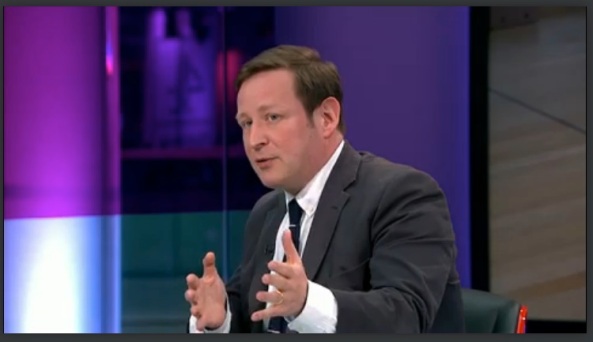
As Ed Vaguely became increasingly vaguer, he repeated his belief that – no, by now we had all guessed he didn’t really believe it himself – he repeated the DfE’s belief that the Arts were not about to fall off a cliff, and there’s nothing wrong with increasing the number taking Science and Technology subjects, except they are and there is.
You won’t believe what Vaguely said next. Well actually you probably will, because let’s be honest we’d all been waiting for him to say it. Yes, that’s right – he crossed his fingers behind his back and tried to get away with the: ‘There are more people taking GCSEs in Art than there were before.’ routine. Yeah – just like David Cameron has never benefited from an offshore tax haven? It’s that classic bit of Df-ingE mis-information that conveniently forgets to explain that the subject entries only increased because the numbers of students taking equivalent BTEC courses in Art & Design have fallen drastically as they’ve switched to taking GCSEs instead. The much more honest version reads: ‘There are far less people taking examination courses in Art than there were before’.
Teaching of the Arts in schools may or may not be falling of a cliff, but there’s certainly a super-sized black hole in Bucket 3 that’s leaking Arts subjects as fast as you can say Vaisey by name, vaguely by nature.
Meanwhile in other overlooked and left behind news:
A recent report by the House of Lords ‘Overlooked and Left Behind’, has concluded that: ‘Non-academic routes to employment are complex, confusing and incoherent’ and recommends that instead, the final four years of schooling should be redesigned so that more pupils can pass recognised vocational qualifications on a par with A-levels.
Somewhere hidden deep inside Sanctuary House, without bothering to actually read the report, a solitary Df-ing E spokesperson rolled a dice and as a result issued Standard Response No 4 which goes:
“We have introduced a more rigorous curriculum so every child learns the basic skills they need, such as English and maths, so they can go on to fulfill their potential whether they are going into the world of work or continuing their studies.”
Well, that’s all OK then. Problem solved. I don’t know why these Lords bother to waste their time writing these reports?
All Change Please! wonders if the Lords’ approach could perhaps pave the way for the end of all external examinations at the end of KS4, and in doing so end the whole EBacc fiasco. And of course creating new courses for non-academic routes to employment wouldn’t cost anything, because millions have already been spent on their development 10 years ago. Anyone here have a copy of Tomlinson’s ‘New Diploma’ handy?
Screenshots courtesy of C4.










